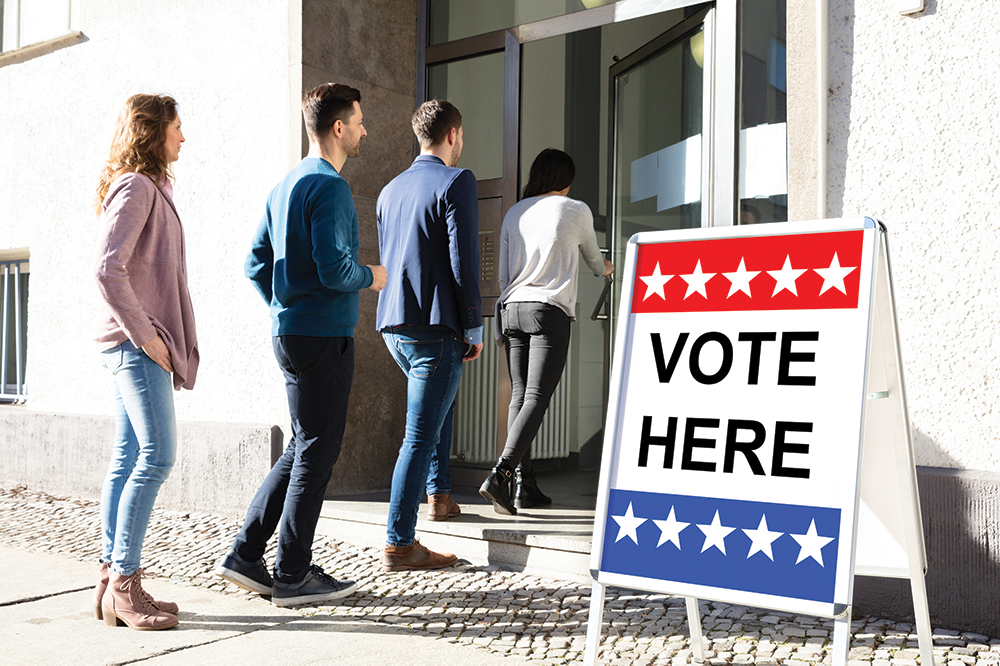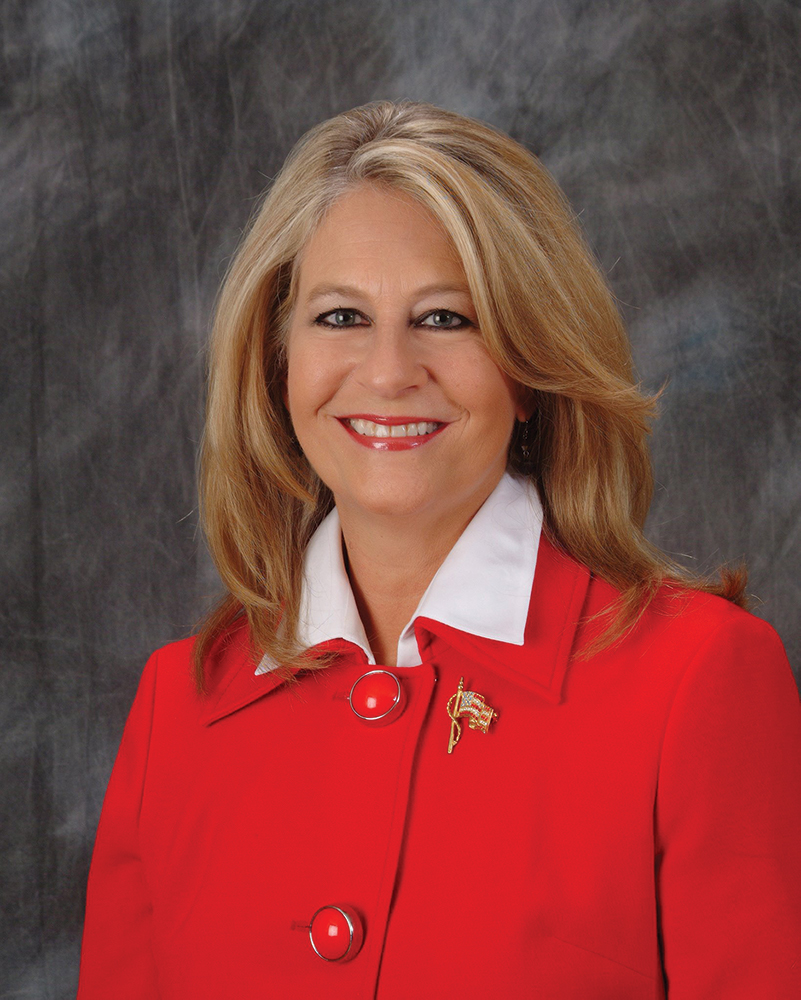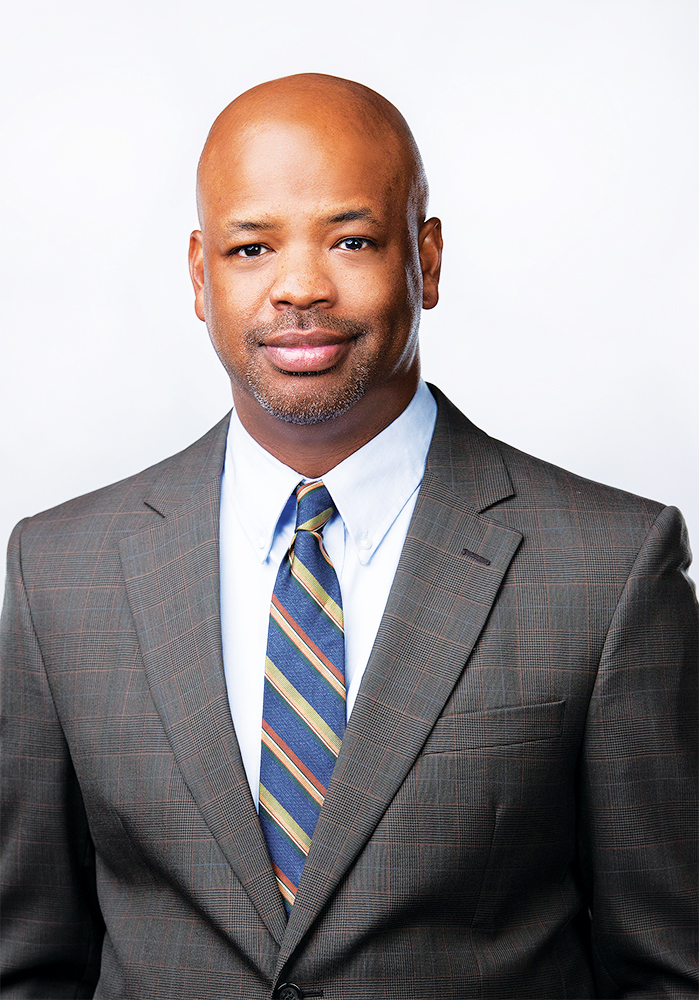By Minnie Lamberth

On March 3, Alabama’s registered voters will begin making their voices heard on the candidates they want to represent them in the highest office in the land, as well as in a number of local and state offices.
In the past, presidential preference primaries were held in June when decisions at the national level had often been narrowed down considerably. In 2015, however, the state changed the date.
“We passed legislation to move our presidential preference primary to the first Tuesday in March so we would be one of the earlier primaries in the nation,” says Secretary of State John Merrill. The goal for this change was to attract more presidential candidates to the state during the competitive part of the election cycles.
As a result, Merrill says, “Our people would have a greater opportunity to meet those candidates and determine who they wanted to vote for based on personal first-hand knowledge of those people and their visits to Alabama.”
The move appears to have paid off. During the election cycle from 2015 to 2016, the state was visited by 10 candidates – eight Republicans and two Democrats. “That was the most presidential candidates that had ever come to Alabama at one time during a presidential cycle,” Merrill says.
Rather than holding a separate primary at a later date for other elected officials, Merrill adds, “We also changed primaries for local offices and state offices to coincide with the presidential preference primary in order to save a significant amount of money.”
When Alabama’s registered voters arrive at their polling places for the primary, they will choose ballots for either the Democratic or Republican parties. As they make a selection for their preferred presidential candidate, they will also have the opportunity to select the delegates they want to represent their votes at the national party conventions.

“The Democratic primary convention will be in July, and the Republican convention will be in August,” Merrill says. “All those delegates that have been elected will vote for their candidate to receive the nomination, and that’s how they’ll determine who their party nominees are. That person’s name will be placed on our ballot for Nov. 3, 2020, as the candidate and the running mate of the candidate for both parties.”
During the primary election, Alabamians will also select their respective party nominees for a variety of other races that will appear on the general election ballot. These contests include a U.S. Senate seat, the U.S. House of Representatives delegation, State Board of Education members, and Public Service Commission President, as well as judicial races at state and local levels.
Voters will be able to participate in either primary without registering as a member of a party. “Most states have a party registration or some kind of party-controlled primary,” says Terry Lathan, chair of the Alabama Republican Party. “Alabama is one of the handful that do not. We are one of the very few states that are not primary controlled.”
Lathan adds, “There is no party registration. The only thing anyone has ever registered for is to vote.”
Although the primaries are open, any runoffs will be limited to those who participated in the party’s primary. “We have a closed runoff,” Lathan says. “If you voted in our primary, you can vote in our runoff.” The same is true for the Democratic side.

In the presidential preference category, the Republican Party has three qualified candidates and a number of delegates for each. “Delegates complete the process,” Lathan explains. They must qualify to run just as any other candidate would, and the delegates that receive the most votes for their place will be the ones voting on the floor of the nominating convention for the candidate they pledged to support.
Considering that the Democratic party has, as of this writing, 16 candidates qualified to run for president in this state, the candidates to become delegates are quite numerous as well. “You’re going to vote for your presidential candidate of choice, and then you will also vote for a number of delegates based upon congressional district,” says Chris England, chair of the Alabama Democratic Party.
“Alabama is not a winner-take-all state,” England says of the party’s nomination process. “It is based on percentages.” Candidates share in the delegates proportionally if they reach a fifteen percent threshold of votes cast in the primary.
Merrill encourages Alabamians to participate in the March 3 primary. “The first thing to being prepared to participate is being a registered voter,” he says. Voter registration forms and other details are available at Alabamavotes.gov.
Statewide amendments also on the ballot
In addition to races on the March 3 ballot, there is Statewide Amendment No. 1, which deals with education at the state level.
The amendment does three things. First, it renames the State Board of Education the “Alabama Commission on Elementary and Secondary Education” and provides that commission members are appointed for up to two terms by the governor and approved by the Senate rather than elected by the public.
Second, it changes the title of the top public education official in the state and provides that this official’s appointment would be approved by the Senate.
Third, it requires the Commission to adopt education standards in place of “common core.”
Source: Alabama Secretary of State’s Office




